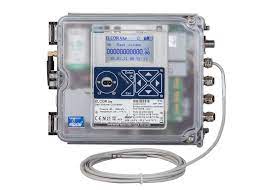
Exploring Electronic Volume Correctors: Functionality, Benefits, and Leading Manufacturers
Electronic Volume Correctors (EVCs) are essential devices in the realm of natural gas measurement and distribution. These intelligent instruments play a pivotal role in accurately measuring, monitoring, and correcting gas volumes, ensuring fairness in billing and efficient resource management. In this article, we delve into the functionality, benefits, and prominent manufacturers of Electronic Volume Correctors.
Functionality of Electronic Volume Correctors
Electronic Volume Correctors are specialized instruments used to ensure accurate gas measurement by compensating for variations in temperature, pressure, and other environmental conditions that can affect the volume of gas. These devices are installed at metering points to convert the measured gas volume under actual operating conditions to a standard volume, typically referred to as “base conditions.” The process involves several key steps:
-
Measurement: EVCs receive data from flow meters and pressure/temperature sensors. These sensors provide real-time information about the gas flow rate, pressure, and temperature.
-
Correction: The received data is then used to calculate the gas volume correction factor. This factor accounts for changes in gas volume due to temperature and pressure variations.
-
Conversion: Once the correction factor is determined, the EVC converts the measured gas volume to the equivalent volume at standard reference conditions, enabling fair billing and precise resource management.
-
Data Logging: EVCs often feature data logging capabilities, storing the corrected volume data and other relevant parameters for audit and analysis purposes.
Benefits of Electronic Volume Correctors
The adoption of Electronic Volume Correctors yields a range of benefits for both gas suppliers and consumers:
-
Accurate Billing: EVCs ensure that consumers are billed accurately for the gas they consume, accounting for changes in temperature and pressure.
-
Fairness and Transparency: EVCs enhance transparency between gas suppliers and consumers by providing consistent and standardized measurements.
-
Efficient Resource Management: These devices assist in optimizing gas distribution networks by providing precise data that can be used for network analysis and infrastructure planning.
-
Reduced Disputes: Accurate measurements reduce billing disputes and foster positive relationships between gas suppliers and consumers.
-
Regulatory Compliance: Many regions have regulations mandating accurate gas measurement. EVCs help companies comply with these regulations.
-
Remote Monitoring: Some EVCs support remote monitoring and control, reducing the need for physical intervention and maintenance.
Leading Electronic Volume Corrector Manufacturers
Several manufacturers are renowned for producing high-quality Electronic Volume Correctors. Here are a few prominent names:
-
ABB: A global technology leader, ABB offers a wide range of EVCs that cater to various gas measurement needs. Their devices often come with advanced communication options and compatibility with various gas metering technologies.
-
Honeywell: Honeywell produces EVCs that are designed for accuracy and reliability. These devices often feature user-friendly interfaces and seamless integration with existing gas measurement systems.
-
SICK AG: SICK AG provides EVCs known for their durability and precision. Their devices are often used in challenging industrial environments and can handle diverse gas compositions.
-
Schneider Electric: Schneider Electric offers EVC solutions that focus on data accuracy and operational efficiency. These devices often support advanced data management and communication protocols.
-
Thermo Fisher Scientific: Thermo Fisher Scientific produces EVCs with an emphasis on data integrity and security. Their instruments are commonly used in critical applications where accuracy is paramount.
Conclusion
Electronic Volume Correctors play a crucial role in ensuring accurate gas measurements, transparent billing, and efficient resource management. With their ability to compensate for variations in temperature and pressure, these devices have become indispensable in the natural gas industry. Leading manufacturers like ABB, Honeywell, SICK AG, Schneider Electric, and Thermo Fisher Scientific continue to innovate and provide solutions that contribute to the advancement of gas measurement technology. As the industry evolves, Electronic Volume Correctors are expected to remain at the forefront of precision and reliability.



